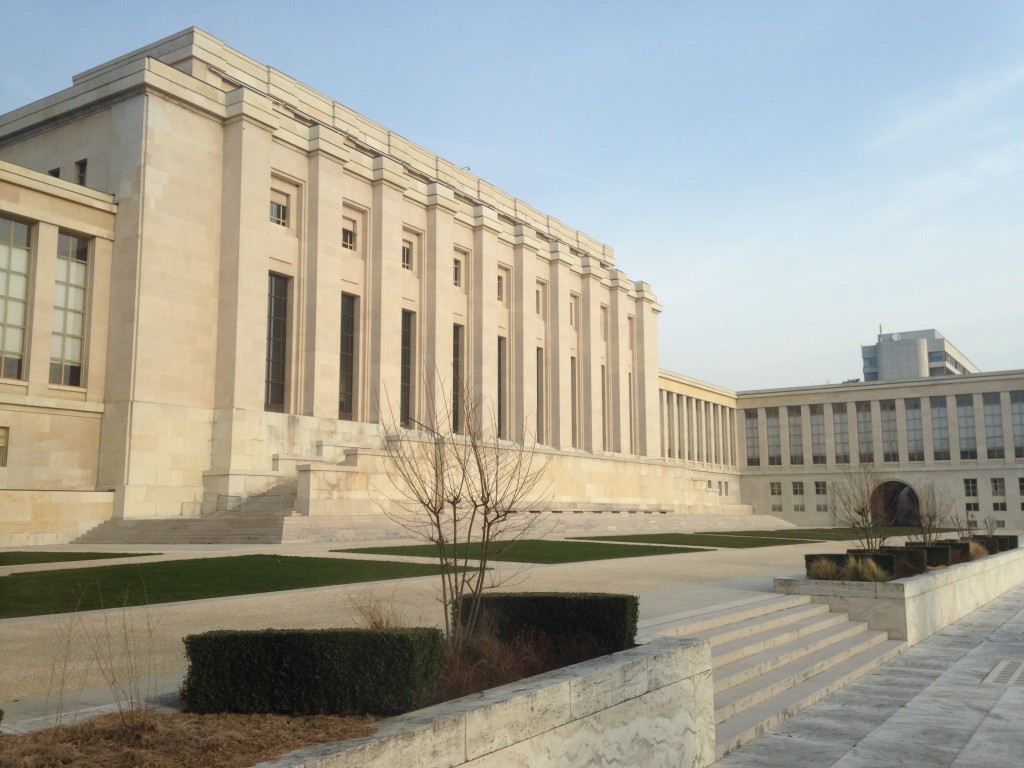الرجاء الضغط هنا لقراءة هذا النصّ باللغة العربيّة
Throughout March 2015, Americans for Democracy & Human Rights in Bahrain (ADHRB) engaged the 28th session of the United Nations Human Rights Council (HRC) in Geneva, Switzerland to raise awareness of ongoing human rights abuses in Bahrain, Saudi Arabia and Kuwait. ADHRB met with dozens of Member States, the United Nations (UN) Office of the High Commissioner for Human Rights (OHCHR), NGOs, and UN Special Procedures. Additionally, ADHRB hosted three side events, conducted oral interventions, and provided commentary on the proceedings of the Session.
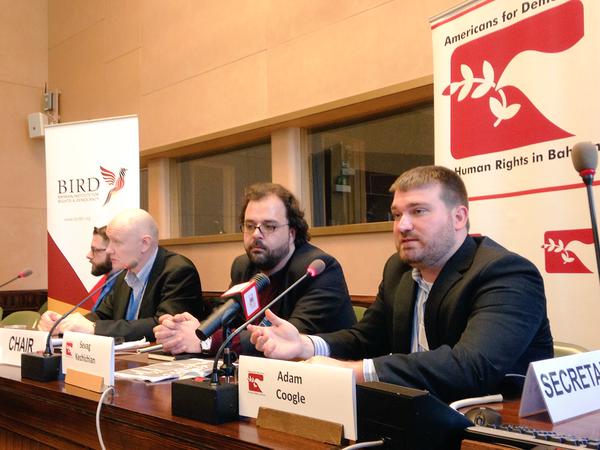
In the first week of the session, ADHRB, along with the Bahrain Institute for Rights & Democracy (BIRD) and the Bahrain Center for Human Rights (BCHR), issued a response to a statement made by Bahraini Undersecretary for Foreign Affairs Abdullah Abdullatif Abdullah. In his statement, Abdullah gave an optimistic assessment of Bahrain’s reform efforts. In the joint ADHRB-BCHR-BIRD response instead indicated that respect for human rights in Bahrain has continued to deteriorate over the intervening months since the last HRC Session in September 2014. During an Interactive Dialogue with the United Nations High Commissioner for Human Rights Zeid Ra’ad al-Hussein, ADHRB’s Advocacy Associate, Michael Payne, delivered an oral intervention which questioned the High Commissioner regarding why Bahrain was not considered a ‘country of concern,’ despite having frequently commented on human rights abuses in the country.
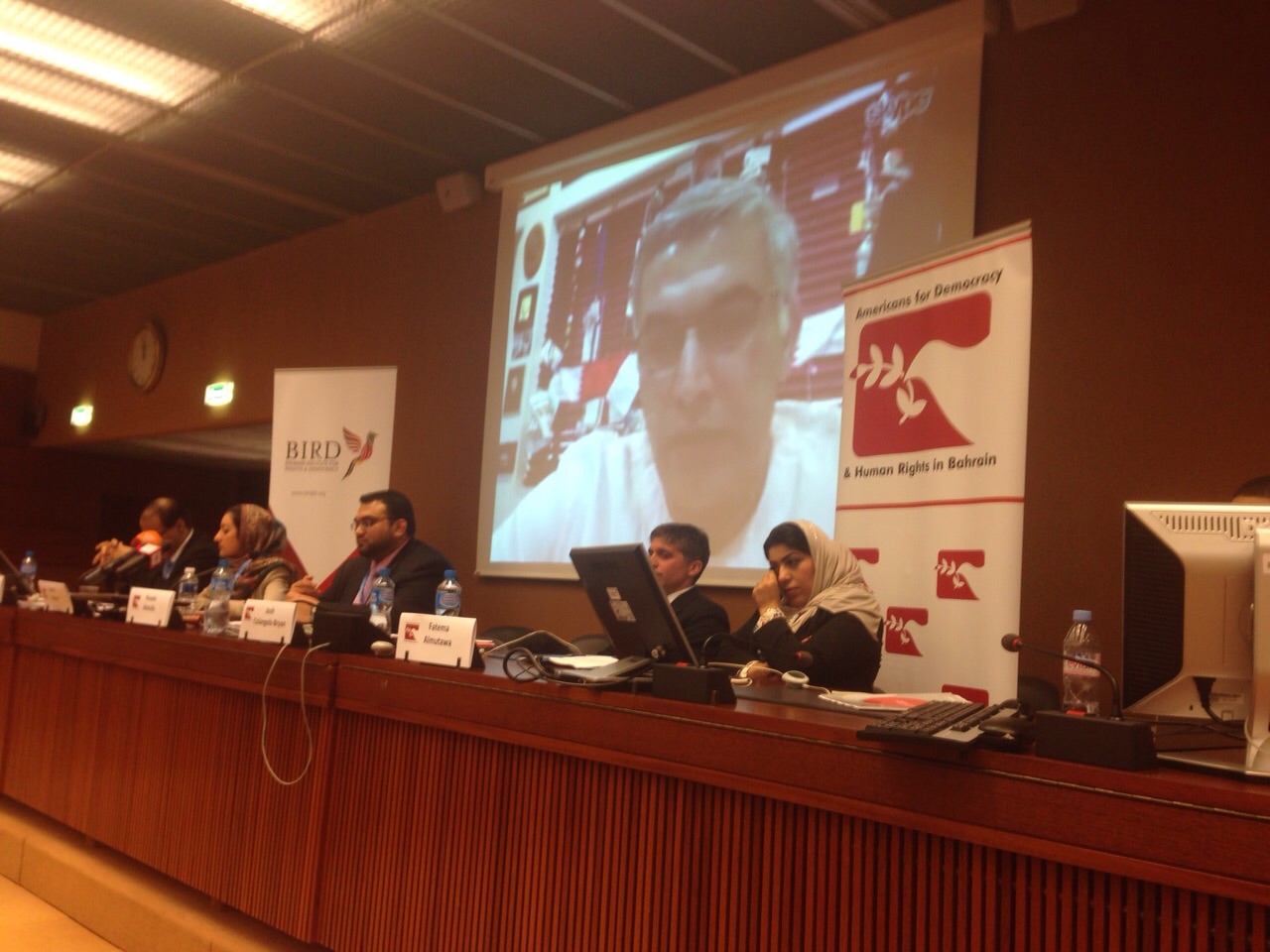
On 10 March, ADHRB, in conjunction with BIRD, BCHR, Amnesty International, Human Rights Watch, PEN International, the European Saudi Organization for Human Rights, and Human Rights First, hosted an event titled “Criminal Justice and Human Rights in Saudi Arabia.” The panel featured ADHRB’s James Suzano, Saudi human rights activist Samar Badawi, Human Rights Watch’s Adam Coogle, Saudi Arabian human rights activist Hala al-Dosari, and Amnesty International’s Sevag Kechichian and was moderated by Brian Dooley of Human Rights First. The event focused on Saudi Arabai’s failure to follow up on the recommendations of the Special Rapporteur on the Independence of Judges and Lawyers’ recommendations in the 13 years since the mandate’s report.
The following day, ADHRB, in coordination with BIRD, BCHR, Index on Censorship, PEN International, and the International Federation of Human Rights, hosted a discussion titled “Religious Discrimination in Bahrain.” Panelists included ADHRB’s Husain Abdulla and Saman Naquvi, BCHR President Nabeel Rajab, Bahraini criminal defense lawyer Fatima al-Mutawa, US human rights attorney Josh Colangelo-Bryan, as well as BHRO President Mohammed al-Tajer. The panel discussed the various ways in which the Bahraini government systematically discriminates against the country’s majority Shi’a population.
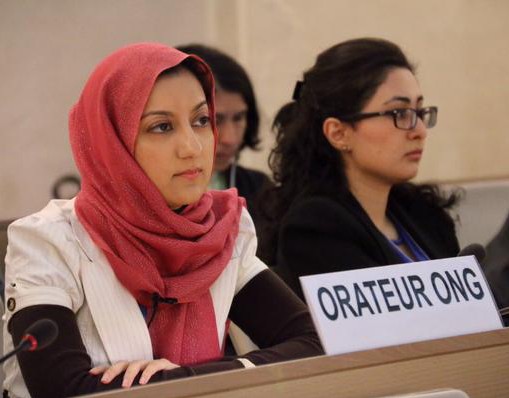
ADHRB Executive Director Husain Abdulla delivered an oral intervention during a Clustered Interactive Dialogue with the Special Rapporteur on Cultural Rights on 11 March. In his statement, Mr. Abdulla thanked the Rapporteur for expressing concern over the destruction of the Pearl Roundabout, which served as the epicenter of popular pro-democracy protests in 2011. Bahraini human rights lawyer Manar Maki, also delivered a statement during a panel on the Rights of the Child, focusing on the mistreatment of detained or incarcerated minors in Bahrain. ADHRB Grassroots Advocacy Associate Saman Naquvi spoke during a Clustered Interactive Dialogue with the Special Representative on Violence against Children. Her statement before the Council also highlighted the persecution of children and minors by the Government of Bahrain.
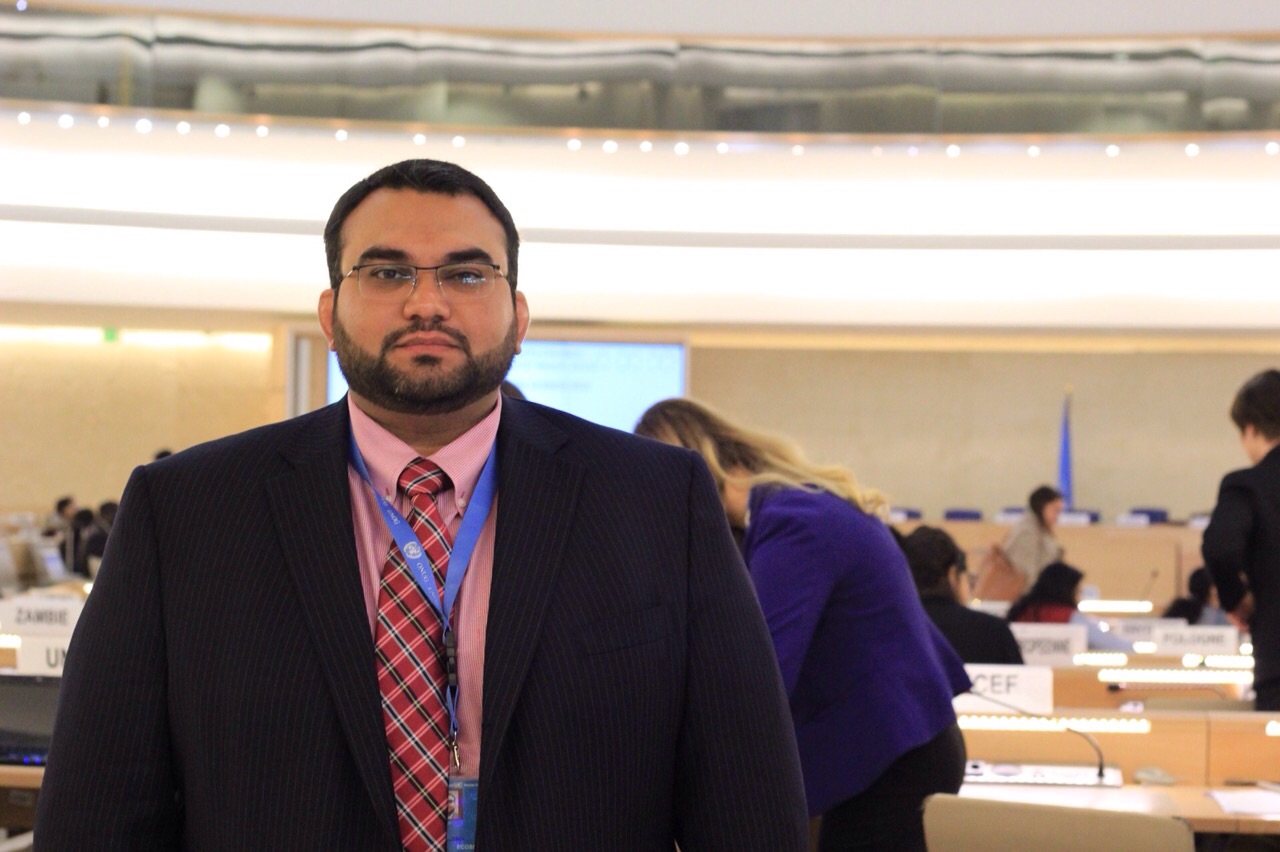
Executive Director of the European Saudi Organization for Human Rights (ESOHR) Ali al-Dubisi delivered an Item 3 Oral Intervention on 13 March. The statement, delivered on behalf of ESOHR and ADHRB, directed attention to some recent negative human rights developments in Saudi Arabia, such as the unusually high rate of executions and government restrictions on the formation of civil societies. That same day Sayed Yousif al-Muhafdha, acting Vice-President of BCHR,delivered an Item 3 oral intervention on behalf of the Alsalam Foundation, ADHRB, and BCHR. His statementfocused on the renewed targeting of human rights defenders and opposition political figures in Bahrain. Husain Abdulla, ADHRB’s Executive Director, delivered an oral intervention during the Item 4 general debate bringing attention to the systematic use of arbitrary arrest and detention, torture and ill-treatment, to severely restrict free expression, free assembly, and free association and silence critical voices peacefully calling for reform.
On 17 March, ADHRB’s Amanda Milani, delivered an oral intervention under Item 4. Her statement focused on failures in the Saudi judicial system, specifically the restriction of the rights of women, human rights defenders and other voices of dissent. The following day, Ms. Milani delivered an Item 5 oral intervention highlighting the lack of cooperation of Gulf Cooperation Council (GCC) nations with the special procedures of the UN Human Rights Council. Later that day, ADHRB’s Michael Payne, delivered an Item 5 oral intervention highlighting Bahrain’s uncooperative relationship with the Special Procedures of the UN Human Rights Council. He cited the fact that Bahrain has not allowed any SRs access to the country since 2006.
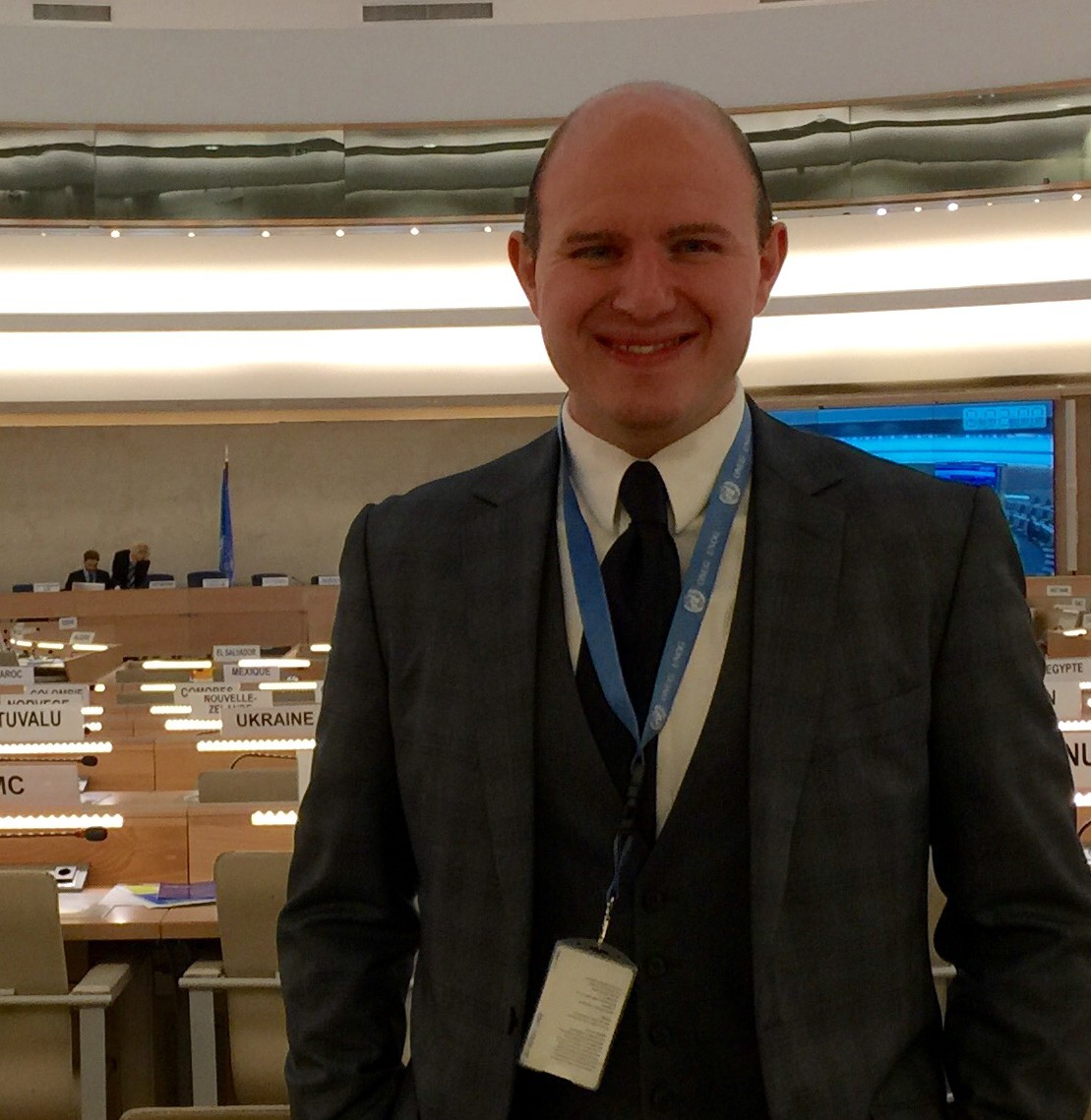
ADHRB, along with BIRD, BCHR, and CIVICUS, held an event on 12 March titled “Civil Society Documentation & Engagement with UN Mechanisms.” Moderated by Tor Hodenfield of CIVICUS, panelists included Nadel Alsalman from BCHR, Roland Chauville from UPR Info, and Safir Syed of OHCHR’s Civil Society Section. The event focused on ways of empowering civil society to document human rights abuses and use thisdocumentation to engage various UN Human Rights Mechanisms. During the event ADHRB Executive Director Husain Abdulla and the President of the Bahrain Transparency Society, Abdulnabi al-Ekri were threatened by Bahraini MP Khalid al-Shaer. During this incident, al-Shaer—Chairman of the Human Rights Committee in the Bahraini Parliament—accused the two men with using their organizations to defame Bahrain, and made statements threatening reprisals against them or their families inBahrain. After the reported threats Husain Abdulla raised ADHRB’s concerns about these threats to the President of the Human Rights Council, Office of the High Commissioner for Human Rights, the Secretariat of the Human Rights Council and other relevant bodies and mechanisms.
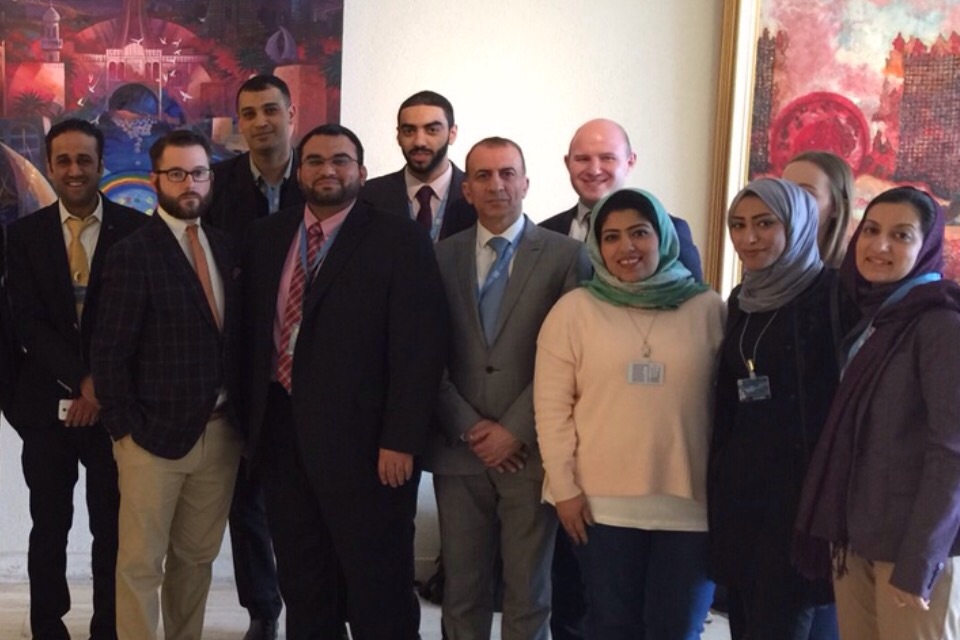
ADHRB’s Michael Payne, delivered an oral intervention during an interactive panel entitled National Policies & Human Rights on 19 March. His statement expressed concern over ineffective and largely superficial human rights policies implemented by the Government of Bahrain. The following week, Mr. Payne also delivered an Item 8 oral intervention bringing attention to reprisals against human rights defenders in Bahrain. In his statement, Mr. Payne pointed to the arrest of prominent Bahraini human rights activist, Nabeel Rajab, less than 24 hours after his return to Bahrain from engaging the 27th session of the Human Rights Council, as a clear case of reprisal against Bahraini human rights defenders.
On 23 March, ADHRB’s Amanda Milani delivered an Item 8 oral intervention focusing on the increasingly frequent attacks on freedom ofexpression and opinion in Gulf Cooperation Council (GCC) nations. The following day, Ms. Milani delivered an Item 9 oral intervention, which expressed concern over state sanctioned discrimination practiced by the Government of Bahrain targeting the indigenous Baharna population. On 26 March, ADHRB’s Michael Payne delivered an Item 10 oral intervention, emphasizing situations in which states have yet to implement recommendations made by the Council and by different procedural mandates. He specifically mentioned how Saudi Arabia has not implemented recommendations from a 2002 visit by the Special Rapporteur on the Independence of Judges and Lawyers. On the same day, Ms. Milani also delivered an Item 10 oral intervention emphasized the need for continuous Human Rights Council investigation and reporting from Bahrain.
See a PDF of this post here.


